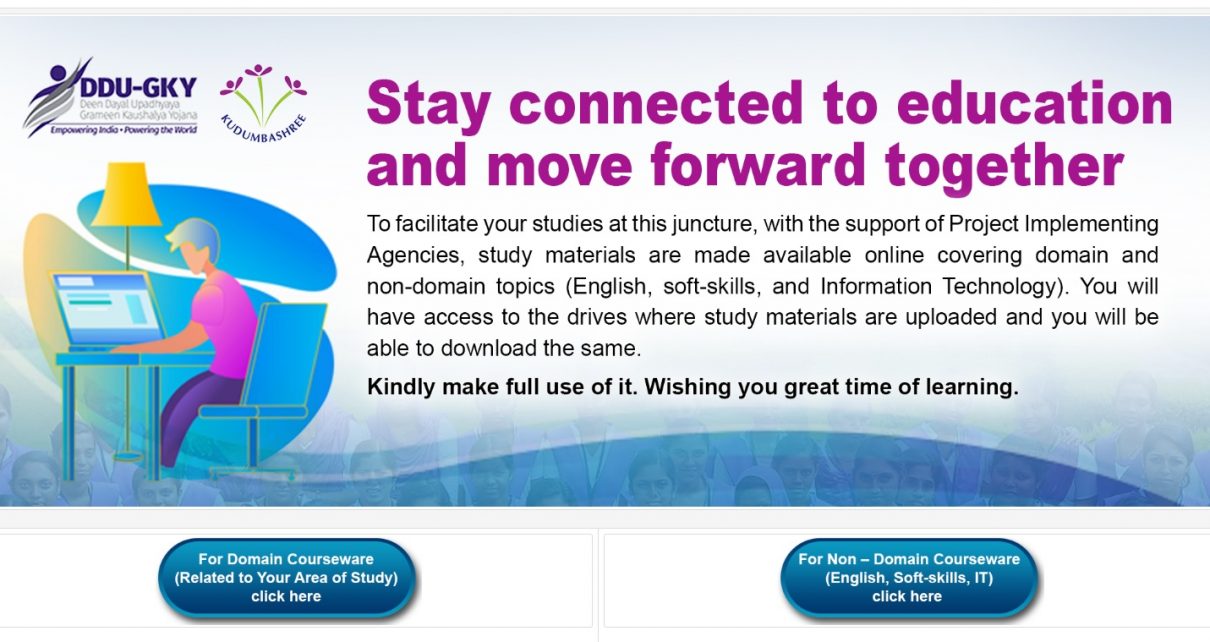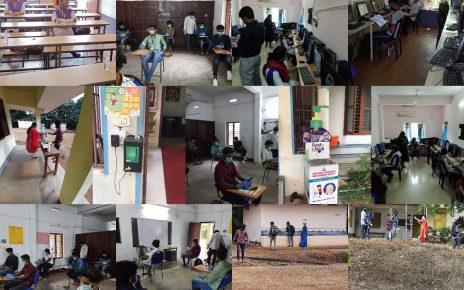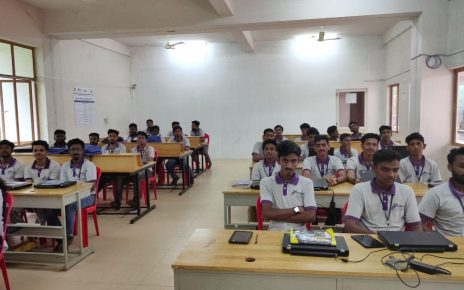It is well known that crisis is the time of most innovation.
Many of us are familiar with stories about how American GI’s kept trucks and jeeps rolling during World War II, even when spare parts weren’t available. Used to tinkering with jalopies in their garages, the young soldiers were able to jury rig fixes with whatever materials were on hand. In response to the coronavirus pandemic, innovators are jumping in to help. Around the world, beermakers and distilleries have shifted production to hand sanitizers. In Italy, a start-up engineering company began quickly using 3D printers to create the valves used in ventilators. Those just-in-time valves are saving lives.
When we look back on the current health crisis, there’s no doubt that we will learn that, it resulted in a number of innovations: new drugs and medical devices, improved healthcare processes, manufacturing and supply chain breakthroughs, novel collaboration techniques.
In skilling too, we have to innovate—there is no option. Skill training centres have been closed, all trainings stopped and youth are back in their home – not knowing how to utilize their time and also uncertain about the future.The world of work is being profoundly affected by the global COVID-19 pandemic. Not only is the health of millions of people at risk, also at stake are their long-term livelihoods and wellbeing. Over the past 3 months, the Coronavirus (COVID-19) pandemic has presented unique challenges to all types and levels of learning, including schooling, TVET (Technical and Vocational Education and Training), apprenticeships and skills development. What’s more, it has also stimulated discussion on the need for accelerated innovation in on-line learning, and the delivery of TVET and skills training. On March 18, 2020 , International Labour Organization (ILO) released a Note on ‘COVID-19 and theworld of work: Impact and policy responses’. The wider impact of COVID-19 on employment and jobs and possible mitigation measures are mentioned in the note.
In this context, we have an opportunity to explore the concept of “learning and training anywhere, anytime”, an idea central to the concept of lifelong learning. This in turn requires examination of a range of issues such as how technically prepared we are to support new ways of working in the face of disruptors like a pandemic, and how quickly we can organize digital education and training and mobilize teachers and trainers to maintain services to learners. We also need to explore innovative learning methodologies for apprentices and workers who primarily acquire or upgrade skills at the workplace.
In this situation, the education system, whether schools, colleges, or coaching centers, have almost instantly moved to online learning and e-learning, while the skill environment needs to catch up with this speed. Of course even before the crisis, MSDE and NSDC have taken steps for encouraging the use of IT and other such modes of learning in vocational training. Individual agencies and training partners have also innovated-whether in developing content or in delivery through distance modes. Now is the time for a paradigm shift.
Admittedly it is not easy to do this in the skilling ecosystem. From the fact that our target group often do not have the necessary connectivity or e-learning readiness, to the fact that skilling is a lot about hands-on, there are many barriers at each step from mobilization, to content development, to delivery, to testing and certification. But we have to apply ourselves seriously to this question. The post COVID-19 world will have even more challenges and the nature of jobs and work may change. It is more important than ever for stakeholders in the skilling system to brainstorm, prepare and take action. Moreover, youth are at home, with time available. It is essential to use this downtime for productive learning. Equally, it is an opportunity for upskilling for every vocation and profession.
Some critical points are:
1.What can we do for skilling when in lockdown or near lockdown conditions? Once we find the solutions, these may then become the order of the day in the post-crisis world. For instance, how can we shift to much more distance learning, e-based individual learning, etc.? The entire skilling ecosystem needs to undergo a paradigm shift. Can we think of blended learning, where learn-from-home is possible for theory aspects, and there are several centres for hands-on training for practical aspects, which are used with caution and under clear guidelines? An entire IT backbone has to be created for running the system. What about content creation, access, testing and certification? NSDC and stakeholders need to work together urgently.
2.How can we support upskilling and re-skilling in this situation? What systems of RPL (Recognition of Prior Learning) can we put into place and how can we encourage and facilitate more and more people to take them up?
3.In the scenario of job losses, the linkage between skilling and jobs is tenuous. The skilling system for the short term, has to focus on skilling with the intent of preparing people for jobs that may emerge, to the best current understanding, and with the objective of productive use of time.
4.Communication, English, Soft skills are probably subjects that can be handled more effectively than hard skills through IT interface. Can we focus on that for various sections?
And for some of these, it is not that we have to start from scratch. In terms of e-learning content,
1.NSDC already has a separate site- eskillindia.org where a number of organizations have shared their e-content.
2.SWAYAM (https://swayam.gov.in/)is a programme initiated by Government of India and designed to achieve the three cardinal principles of Education Policy viz., access, equity and quality. This is done through a platform that facilitates hosting of all the courses, taught in classrooms from Class 9 till post-graduation to be accessed by anyone, anywhere at any time. All the courses are interactive, prepared by the best teachers in the country and are available, free of cost to any learner. More than 1,000 specially chosen faculty and teachers from across the country have participated in preparing these courses.
3.In Kerala, Kudumbasree had started uploading of syllabus, course materials, TLM of DDU-GKY in the website- http://www.kudumbashree.org/pages/833 . This is for students to read and study during lock down. Course material of 32 domain + all non-domain uploaded.
Training partners and trainees can evaluate these and put them into use. Many other organizations have e-content like Schoolnet (earlier IL&FS Skills), Labournet, ishiksha of SKillpro to name a few which can be used for such purposes.
Similarly for spoken English and soft skills there are hundreds of modules and videos available for free or for a very less cost which can be subscribed for the trainees during these times. But it is now the time to go from incremental steps to a paradigm shift; from reactive measures to quickly gauging the situation and taking charge.
All of us are floundering in this unprecedented crisis. But maybe we should strive to flounder with some purpose and direction. Who knows, maybe in this crisis also lie opportunities.
Content courtesy:
1.https://www.ilo.org/global/topics/coronavirus/lang–en/index.htm
2.https://swayam.gov.in/about
3.https://eskillindia.org/
4.Kudumbasree.org
5.Different articles on skilling & COVID-19




